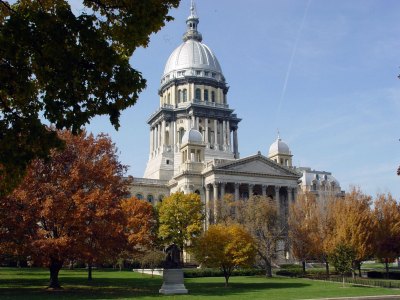Some Republicans are crossing party lines as well as their governor in a significant step towards snapping the country’s longest-standing budget impasse.
Though Illinois’ new fiscal year officially started on Saturday, the House remains in session, and in fact, approved a $5 billion dollar income tax increase yesterday.
According to the State Journal Register, for the law to take effect immediately, it needed three-fifths majority, or 71 or more votes. And with fifteen republicans, including local State Representative C.D. Davidsmeyer, joining majority Democrats, the vote for the tax increase passed by a margin of 72-45.
However, Governor Rauner issued a statement immediately following the vote, stating his intentions to veto the tax increase if it is not accompanied by business-friendly reforms. The governor dismissed the proposals for their lack of spending restraint or “Structural” changes he wants.
Since the tax increase received 72 votes, that’s enough to override a veto from Rauner, but it’s uncertain whether the fifteen republicans who joined democrats yesterday will again vote against the governor.
According to the Springfield newspaper, democrats say they continue to negotiate with Rauner and the GOP over the governor’s demands, like a statewide property tax freeze, cost-cutting measures to the workers’ compensation program for injured employees, and cuts to pension benefits to reduce a ballooning deficit.
The proposal would increase the personal income tax rate from 3.75 percent to 4.95 percent, and the corporate rate from 5.25 percent to 7 percent. The revenue package now heads to the Senate for approval.
State Comptroller Susana Mendoza has said that without a budget, she will not be able to cover even basic services ordered by courts and the $6.2 billion dollar budget deficit, and that the $14.7 billion dollars in overdue bills would increase if there is no budget.
Following the tax-increase vote, the chamber voted 81-34 on a fiscal outline that would spend close to $36 billion dollars – about $1 billion less than the May version sent by the Senate, where the bill now returns for concurrence.




